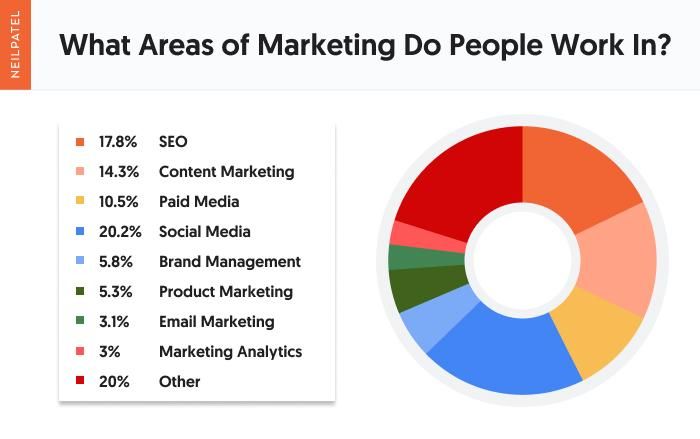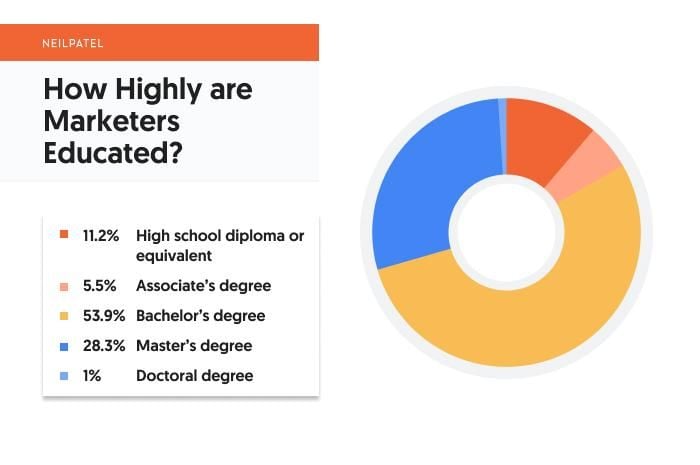Digital marketing is one of the most in-demand and rewarding careers in the world today. It involves using online platforms and tools to promote products, services, brands, or causes to a target audience. Digital marketers use various strategies and techniques such as SEO, social media, email marketing, content marketing, video marketing, and more to attract, engage, and convert customers online.
But how do you find and land digital marketing jobs in Zambia, a country with a population of over 18 million people and a growing internet penetration rate of 31.8%? What skills and qualifications do you need to succeed in this field? What are the best practices and tips to stand out from the competition and impress potential employers?
In this blog post, I will answer these questions and more. I will show you how to find and land digital marketing jobs in Zambia, whether you are a beginner or an experienced professional. I will also share some of the benefits and challenges of working as a digital marketer in Zambia, and how you can overcome them. By the end of this post, you will have a clear idea of how to start or advance your career in digital marketing in Zambia.
Table of Contents
Why Choose Digital Marketing as a Career in Zambia?
Digital marketing is a great career choice for anyone who is passionate about online communication, creativity, and problem-solving. It offers many advantages, such as:
- High demand and growth potential: Digital marketing is a fast-growing and dynamic industry that is constantly evolving and adapting to new trends and technologies. According to a report by Mordor Intelligence, the global digital marketing market size was valued at USD 304.9 billion in 2019 and is expected to reach USD 640.2 billion by 2025, registering a compound annual growth rate (CAGR) of 13.6%. This means that there is a huge demand for digital marketing professionals across various sectors and industries, and this demand is only going to increase in the future.
- Variety and flexibility: Digital marketing is a diverse and versatile field that offers a wide range of opportunities and challenges. You can choose to specialize in one or more areas of digital marketing, such as SEO, social media, email marketing, content marketing, video marketing, PPC, mobile marketing, and more. You can also work for different types of organizations, such as agencies, corporations, nonprofits, or startups. You can even work as a freelancer or a consultant, and set your own schedule and rates. Digital marketing allows you to work from anywhere, as long as you have a computer and an internet connection.
- Creativity and innovation: Digital marketing is a creative and innovative field that requires you to think outside the box and come up with new and effective ways to reach and engage your audience. You can use your imagination and skills to create compelling and memorable campaigns that stand out from the crowd and generate results. You can also experiment with new tools and platforms, and learn new skills and techniques along the way.
- Impact and satisfaction: Digital marketing is a rewarding and fulfilling career that allows you to make a positive impact on your clients, customers, and society. You can use your digital marketing skills to help your clients achieve their goals, whether it is increasing sales, brand awareness, customer loyalty, or social impact. You can also use your digital marketing skills to support causes and issues that you care about, and make a difference in the world. You can measure and track your performance and results, and see the impact of your work.
What Skills and Qualifications Do You Need to Become a Digital Marketer in Zambia?
To become a successful digital marketer in Zambia, you need to have a combination of hard and soft skills, as well as relevant qualifications and experience. Here are some of the most important skills and qualifications that you need to have or acquire:

1. Hard skills:
These are the technical and specific skills that you need to perform various tasks and functions in digital marketing. Some of the most common and essential hard skills are:
- SEO: Search engine optimization (SEO) is the process of improving the visibility and ranking of a website or a web page on search engines like Google or Bing. SEO involves various aspects, such as keyword research, content optimization, link building, technical SEO, and more. SEO is crucial for driving organic traffic and leads to a website, and increasing its authority and credibility. To master SEO, you need to have a good understanding of how search engines work, what factors affect ranking, and how to use various tools and techniques to optimize a website or a web page for search engines and users.
- Social media: Social media is the use of online platforms and networks, such as Facebook, Twitter, Instagram, LinkedIn, and more, to communicate and interact with a target audience. Social media involves various activities, such as creating and sharing content, engaging and building relationships with followers, running ads and campaigns, and more. Social media is vital for increasing brand awareness, customer loyalty, and social proof, as well as generating traffic and leads. To master social media, you need to have a good understanding of how different platforms and networks work, what types of content and strategies work best for each platform and network, and how to use various tools and metrics to manage and measure your social media presence and performance.
- Email marketing: Email marketing is the use of email to send messages and offers to a target audience. Email marketing involves various steps, such as building and segmenting an email list, creating and designing email campaigns, writing and testing email copy, sending and delivering emails, and more. Email marketing is important for nurturing and converting leads, increasing sales and revenue, and retaining and re-engaging customers. To master email marketing, you need to have a good understanding of how email marketing works, what are the best practices and tips for creating effective email campaigns, and how to use various tools and metrics to optimize and evaluate your email marketing efforts.

- Content marketing: Content marketing is the creation and distribution of valuable and relevant content, such as blog posts, articles, videos, podcasts, ebooks, infographics, and more, to attract and engage a target audience. Content marketing involves various stages, such as planning and researching content ideas, creating and editing content, publishing and promoting content, and more. Content marketing is essential for educating and informing your audience, establishing your authority and credibility, and generating traffic and leads. To master content marketing, you need to have a good understanding of how content marketing works, what are the best practices and tips for creating engaging and useful content, and how to use various tools and platforms to publish and promote your content.
- Video marketing: Video marketing is the use of video to showcase and promote products, services, brands, or causes to a target audience. Video marketing involves various aspects, such as scripting and storyboarding, filming and editing, uploading and optimizing, and more. Video marketing is powerful for capturing and retaining attention, conveying emotions and stories, and increasing conversions and sales. To master video marketing, you need to have a good understanding of how video marketing works, what are the best practices and tips for creating captivating and persuasive videos, and how to use various tools and platforms to produce and distribute your videos.
- Analytics: Analytics is the collection and analysis of data to measure and improve the performance and results of digital marketing activities and campaigns. Analytics involves various elements, such as setting and tracking goals, using and interpreting metrics, reporting and presenting findings, and more. Analytics is crucial for evaluating and optimizing your digital marketing efforts, and making data-driven decisions. To master analytics, you need to have a good understanding of how analytics works, what are the key metrics and indicators for each digital marketing channel and strategy, and how to use various tools and software to collect and analyze data.
2. Soft skills:
These are the general and transferable skills that you need to work effectively and efficiently in digital marketing. Some of the most common and essential soft skills are:
- Communication: Communication is the ability to express and exchange information and ideas clearly and effectively, both verbally and in writing. Communication is vital for digital marketing, as you need to communicate with various stakeholders, such as clients, customers, colleagues, managers, and more. You also need to communicate your message and value proposition to your target audience, and persuade them to take action. To improve your communication skills, you need to practice and refine your speaking and writing skills, use appropriate tone and language, listen and respond actively, and give and receive feedback.
- Creativity: Creativity is the ability to generate and implement new and original ideas and solutions. Creativity is important for digital marketing, as you need to come up with innovative and effective ways to reach and engage your audience, and stand out from the competition. You also need to adapt and respond to changing trends and technologies, and find new opportunities and challenges. To enhance your creativity skills, you need to explore and experiment with different perspectives and approaches, seek inspiration and learn from others, and embrace failure and feedback.
- Problem-solving: Problem-solving is the ability to identify and resolve issues and difficulties. Problem-solving is essential for digital marketing, as you need to deal with various problems and obstacles, such as technical glitches, budget constraints, customer complaints, and more. You also need to find and exploit opportunities and gaps, and optimize and improve your digital marketing processes and outcomes. To develop your problem-solving skills, you need to define and analyze the problem, brainstorm and evaluate possible solutions, implement and test the best solution, and monitor and review the results.
- Collaboration: Collaboration is the ability to work effectively and efficiently with others towards a common goal. Collaboration is important for digital marketing, as you need to work with various people and teams, such as designers, developers, writers, analysts, and more. You also need to coordinate and align your digital marketing activities and campaigns with other departments and functions, such as sales, customer service, and more. To improve your collaboration skills, you need to communicate and cooperate with others, respect and appreciate diversity, share and delegate tasks, and give and receive feedback.
- Learning: Learning is the ability to acquire and apply new knowledge and skills. Learning is essential for digital marketing, as you need to keep up with the latest trends and technologies, and learn new tools and techniques. You also need to update and upgrade your digital marketing skills and qualifications, and learn from your successes and failures. To enhance your learning skills, you need to be curious and open-minded, seek and use various sources and resources, practice and apply what you learn, and reflect and evaluate your learning.
3. Qualifications:
These are the formal and academic credentials that you need to have or obtain to become a digital marketer in Zambia. Some of the most common and desirable qualifications are:

- Degree or diploma: A degree or diploma in digital marketing, or a related field, such as marketing, communication, business, or computer science, can help you gain the theoretical and practical knowledge and skills that you need to become a digital marketer. A degree or diploma can also help you demonstrate your credibility and competence to potential employers, and increase your chances of getting hired. However, a degree or diploma is not a mandatory requirement for becoming a digital marketer, as you can also learn and master digital marketing skills through online courses, certifications, books, blogs, podcasts, and more.
- Certification: A certification is a validation and recognition of your digital marketing skills and knowledge by a reputable and authoritative organization, such as Google, Facebook, HubSpot, and more. A certification can help you enhance and showcase your digital marketing skills and knowledge, and differentiate yourself from other candidates. A certification can also help you gain access to various resources and opportunities, such as online communities, events, and more. However, a certification is not a guarantee of getting hired, as you also need to have relevant experience and portfolio to prove your digital marketing abilities and results.

- Portfolio: A portfolio is a collection and presentation of your digital marketing projects and achievements, such as websites, blogs, social media profiles, email campaigns, videos, and more. A portfolio can help you demonstrate and highlight your digital marketing skills and knowledge, and show your potential employers the impact and value that you can bring to their organization. A portfolio can also help you showcase your creativity and personality, and express your passion and interest in digital marketing. However, a portfolio is not enough to get hired, as you also need to have effective communication and collaboration skills to work well with others.
4. Experience:
This is the practical and hands-on exposure and involvement that you have or gain in digital marketing, either as an employee, a freelancer, a volunteer, or a learner. Experience can help you apply and improve your digital marketing skills and knowledge, and learn from real-world situations and challenges. Experience can also help you build and expand your network and reputation, and find and create new opportunities and possibilities. However, experience is not a prerequisite for becoming a digital marketer, as you can also start and grow your own digital marketing projects and initiatives, such as a blog, a podcast, a YouTube channel, and more.
How to Find and Land Digital Marketing Jobs in Zambia?
Now that you know what skills and qualifications you need to become a digital marketer in Zambia, the next question is: how do you find and land digital marketing jobs in Zambia? Here are some of the best practices and tips that you can follow:
- Build and update your resume and cover letter: Your resume and cover letter are the first and most important documents that you need to prepare and submit when applying for digital marketing jobs in Zambia. Your resume and cover letter should be clear, concise, and customized for each job that you apply for. Your resume should highlight your skills, qualifications, and experience in digital marketing, and show your achievements and results. Your cover letter should explain why you are interested and qualified for the job, and how you can add value to the organization. You should also include links to your portfolio, certification, and social media profiles in your resume and cover letter, to provide more evidence and information about your digital marketing capabilities and potential.
- Search and apply for digital marketing jobs online: The internet is the best and most convenient place to search and apply for digital marketing jobs in Zambia or anywhere else in the world. You can use various online platforms and resources, such as job boards, career websites, social media groups, online communities, and more, to find and apply for digital marketing jobs that match your skills, qualifications, and interests. You can also use online tools and services, such as Zambia Ads, a popular online classified and business directory website in Zambia where users can list, sell and buy a wide range of products and services. It provides a platform for individuals and businesses to connect and engage in transactions. You can use ZambiaAds to find and apply for digital marketing jobs in Zambia, as well as to advertise and promote your own digital marketing services and projects.
- Network and connect with other digital marketers and organizations: Networking and connecting with other digital marketers and organizations can help you find and land digital marketing jobs in Zambia, as well as to learn and grow as a digital marketer. You can network and connect with other digital marketers and organizations through various online and offline channels, such as events, workshops, webinars, podcasts, blogs, forums, and more. You can also join and participate in various digital marketing associations and communities, such as [Digital Marketing Association of Zambia (DMAZ)], a professional body that aims to promote and advance the digital marketing industry in Zambia. You can use networking and connecting to build and expand your relationships and reputation, and to discover and create new opportunities and possibilities.
- Prepare and practice for digital marketing interviews: Digital marketing interviews are the final and most crucial step to land digital marketing jobs in Zambia. Digital marketing interviews are designed to test and evaluate your digital marketing skills and knowledge, as well as your personality and fit for the organization. Digital marketing interviews can involve various types and formats, such as phone, video, face-to-face, panel, case study, and more. You should prepare and practice for digital marketing interviews by researching the organization and the job, reviewing your resume and portfolio, anticipating and answering common and specific digital marketing questions, and asking relevant and insightful questions. You should also dress professionally, be punctual, be confident, be polite, and be enthusiastic during the digital marketing interviews.
Conclusion
Digital marketing is a great career choice for anyone who is passionate about online communication, creativity, and problem-solving. It offers many benefits, such as high demand and growth potential, variety and flexibility, creativity and innovation, and impact and satisfaction. To become a successful digital marketer in Zambia, you need to have a combination of hard and soft skills, as well as relevant qualifications and experience. You can find and land digital marketing jobs in Zambia by following some of the best practices and tips, such as building and updating your resume and cover letter, searching and applying for digital marketing jobs online, networking and connecting with other digital marketers and organizations, and preparing and practicing for digital marketing interviews.
I hope you enjoyed reading this blog post, and learned something new and useful. If you have any questions or comments, please feel free to share them below. And if you liked this blog post, please share it with your friends and colleagues. Thank you for reading!
What do you think of digital marketing as a career in Zambia? Do you have any experience or advice to share? Let me know in the comments section.






Leave a Reply